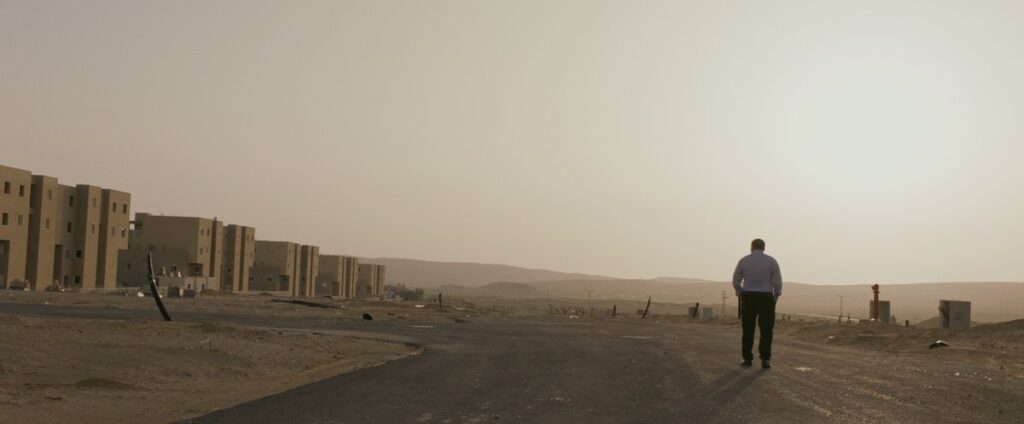Michale Boganim grew up in Israel, in a Moroccan family. Her father was in the Israeli Black Panther movement. She is a graduate of the National Film School in London. Her student film “Dim Memories” was selected for Directors’ Fortnight at Cannes 2002, and won the Gras Savoye Award. In 2005, Boganim’s “Odessa… Odessa!,” a documentary feature, screened at Sundance and won the CICAE Prize at the Berlin Film Festival. Her first fiction feature, Olga Kurylenko-starrer “Land of Oblivion,” premiered at both the Venice and Toronto Film Festivals in 2011.
“The Forgotten Ones” will premiere at the 2021 Venice International Film Festival on September 5. The fest is taking place September 1-11.
W&H: Describe the film for us in your own words.
MB: Israeli society is marked by a taboo — that of the systemic discrimination against Jews who emigrated to the Promised Land from Arab countries. This discrimination is a wound that has not healed to this day.
In the 1970s, a movement inspired by the American Black Panthers emerged from the impoverished Musrara neighborhood of Jerusalem. Advocates from this movement demanded basic rights for the so-called Mizrahims, the adjective used to describe oriental Jews from North Africa and the Middle East.
As I mourned my father, a member of this movement, I had a desire to confront my personal questions with history and embarked on a journey with my daughter to explore the past and meet several generations of Mizrahims.
This film is a road movie across the dusty suburbs of Israel, an area that’s widely unknown and left in the shadow — it’s a forgotten one.
W&H: What drew you to this story?
MB: I’m a French-Israeli director, and I split my time between Paris and Israel. When my father passed away I felt an urge to share his fight against discrimination in Israel and that struggle’s connection to the the Black Panther movement in the ’70s.
W&H: What do you want people to think about after they watch the film?
MB: I would like people to learn about the forgotten people from the suburbs of Israel, and the harsh discrimination these Mizrahims faced when they arrived in Israel. Through a dialogue with folks from three generations of Mizrahims, the film also addresses today’s situation and divisions that still exist within Israeli society.
W&H: What was the biggest challenge in making the film?
MB: The biggest challenge was to show that this discrimination continues to be perpetuated in present times. Many Israelis have denied the past, and the discrimination that was done to Yemenites, Moroccan, and Iraqi Jews during the construction of the country, but they’re also denying the present and the fact that the discrimination is still continuing.
W&H: How did you get your film funded? Share some insights into how you got the film made.
MB: The film was founded mostly with European grants, the CNC and Ile de France, and some post-production grants in Israel. We received support from the Rabinovich Foundation.
It was a long process of writing and developing ideas. We also pitched the film at CPH:DOX in Denmark.
W&H: What inspired you to become a filmmaker?
MB: I think I was drawn to filmmaking through my love for anthropology. Like Godard!
Jean Rouch had probably the biggest influence on me, but also New Wave auteurs like Agnès Varda, and even more so Chantal Ackerman, whose work has always inspired me.
W&H: What’s the best and worst advice you’ve received?
MB: The best advice was to keep going and continue making films and that I also should keep my identity in filmmaking and writing, without trying to be fashionable.
The worst was to try to be less ambitious!
W&H: What advice do you have for other women directors?
MB: To keep making film and taking advantage of the fact that attitudes and interests are changing and minds are becoming more and more open.
I feel that female directors are being treated with more consideration today.
W&H: Name your favorite woman-directed film and why.
MB: Chantal Ackerman is my favorite director, probably for her freedom in creating the films she wanted to make. She could do a documentary, then a narrative feature, then an art video project. She didn’t seem to have any roots and chose to film in many languages.
She lived in Belgium, New York, Israel. I actually met her once and she had this incredible deep look on people.
W&H: How are you adjusting to life during the COVID-19 pandemic? Are you keeping creative, and if so, how?
MB: I’ve never been more creative than during this pandemic! Lockdown was the perfect moment to forget about the world and to focus on my film.
W&H: The film industry has a long history of underrepresenting people of color onscreen and behind the scenes and reinforcing — and creating — negative stereotypes. What actions do you think need to be taken to make it more inclusive?
MB: Changing the image of women onscreen is the first thing; there’s still a lot of pressure on women today about the way they must look onscreen, for example. When I film an actress she tends to be more wary about her image than an actor who isn’t as concerned about appearing old or tired. Also, much bigger roles should be offered to woman, and actresses and actors should also work more with female directors or directors who are visible minorities. Producers, actors, and actresses should take more risks and promote women directors much more.







